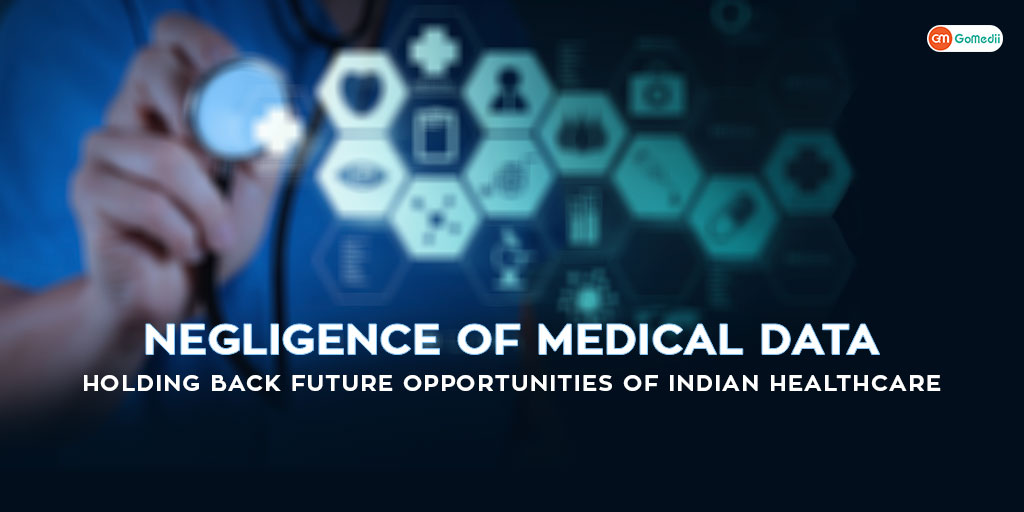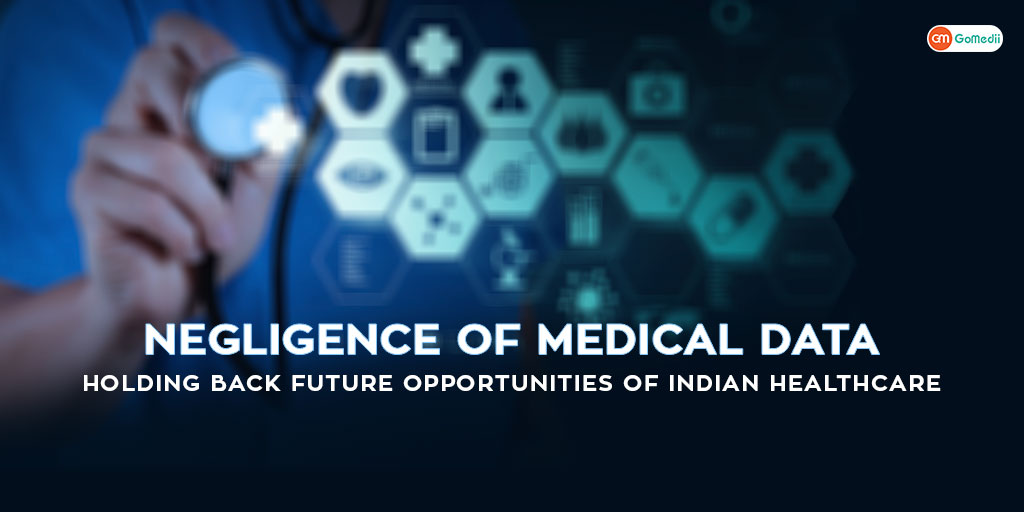Negligence of Medical Data: Holding Back Future Opportunities of Indian Healthcare
Blog: NASSCOM Official Blog

With the technology coming on par every day, data and information has not only become easier to collect but also gives an edge over its proper and safe storage and accessibility. However, the entire system of technical prudence fails to work when it comes to maintain and collect medical data. In India, in particular, this is one of the most sought improvements that most of the medical companies and private firms have urged to be included.
There are hurdles faced by medical professionals in regard to keeping the medical data of their loyal patients. Though the problem in hand might be very well compensated with the idea of dealing with files and physical measures like paper written spaces, they ultimately fail to achieve the purpose to maintain the records. Comparative of other countries and cultures, India still has to own up to the fact that medical information and records, in general, are neglected and need to be systematically stored on technologically advanced platforms.
The major challenge that comes up with the negligence of data is tracing back the medical records. As professionals, there is a lot of data storage requirement for a medical expert. These might not include the extensive data of the patients. The simple reason behind this rationale is the volume. It is practically impossible to host details of such volume. Taking a hypothetical situation of 15 patients per day, that amounts to a voluminous data that has to be stored even in a week.
However, all of these said, it does not deny the fact that neglecting medical data is not the discourse that the medical industry can afford to take. As the Hybrid model is enthusiastically promoted in the medical industry, the urge of making sure that the medical data is well documented and accessible is important.
It helps the doctor and the professionals in two very important ways. The first one is that it will help them in the scientific evaluation of their patient profile, helping in analyzing the treatment results, and to plan treatment protocols. It also helps in planning governmental strategies for future medical care. The lack in the present setting is in the issue of alleged medical negligence.
The legal system relies mainly on documentary evidence in a situation where medical negligence is alleged by the patient or the relatives. In an accusation of negligence, this is very often the most important evidence deciding on the sentencing or acquittal of the doctor. With the increasing use of medical insurance for treatment, insurance companies also require proper record-keeping to prove the patient’s demand for medical expenses.
Improper record-keeping can result in declining medical claims. It is disheartening to note that in spite of knowing the importance of proper record keeping it is still in a nascent stage in India. It is wise to remember that “Poor records mean poor defense, no records mean no defense”.
One more aspect is the method by which documents are kept in hospitals in India. It is mainly the manual collection that is done which makes the chances of data being lost higher than expected. There are serious limitations of manual record-keeping including the need for large storage and one must adhere to understand these. These might be a good option for documentary purpose, however, is fruitless if lost amidst piles of files.
In India, we have brought in technological advancement in many spaces. Yet, when it comes to medical data summary, we tend to fall on the back foot. Let us turn to another spectrum of medical data. Until now the discussion revolved around the very basic idea of “prescriptions”. The story does not end here or in the sequels of how one might use the data of prescriptions over and over again.
The second aspect is that of health records and treatment records. There are a number of details and different paperwork involved even when a patient discharges. Keeping all of these details in a more organized and easily accessible manner is a big task in itself. It is practically impossible to dig into information and files of people who have a record with the hospital for a decade or so. Another horizon to touch is the data discrepancies.
Discrepancies in the summary given to the patient and what is kept in the hospital records can cause suspicion about tampering with the medical records. These discrepancies should be avoided at all costs as the benefit of this usually goes in favor of the patient and sometimes the doctor. However, the ultimate loss is to the trust of the patient-doctor relationship.
In legal terms as well, the requirement of the document as evidence cannot be neglected. These medical records tend to be used under claims of negligence either on the part of the doctor or the hospital. It is imperative to record the fact that the doctor has advised a course of action with all its implications if not followed.
The fact that the patient has understood this and has refused it on his volition should be recorded. This should be signed by the doctor, patient, or relative and duly witnessed. This document has to be retained along with the patient records. It will help the doctor in situations where the patient alleges negligence later. Hence, the manual system, may not work in such a case and you need to have a database on a system that records these data in electronic form.
What else might make a big issue when medical data is neglected? Confidentiality, Medical records can be used as a personal or impersonal document. 1) Personal document – this information is confidential and should not be released without consent. of the patient except in some specific situations. 2) Impersonal document – the record loses its identity as a personal document and patient permission is not required. These records could be used for research purposes.
Confidentiality is an important component of the rights of the patient. The hospital is legally bound to maintain the confidentiality of personal medical records. The patient can claim negligence against the hospital or the doctor for a breach of confidentiality.
At GoMedii, talking about these aspects and understanding the grievances of the negligence of medical data, we have formulated the concept of Health Wallet. It encompasses the idea of both securing and storage of data. It helps the doctor-patient relationship grow stronger and better. The patients may find the ease of accessing the records and the same goes for the doctor. The bridge between them is the confidentiality that is maintained at all levels. The time duration of data accessibility and customer support binds the entire system together for the Health Wallet. We as a company are providing edge to the medical industry in India.
The post Negligence of Medical Data: Holding Back Future Opportunities of Indian Healthcare appeared first on NASSCOM Community |The Official Community of Indian IT Industry.
Leave a Comment
You must be logged in to post a comment.








